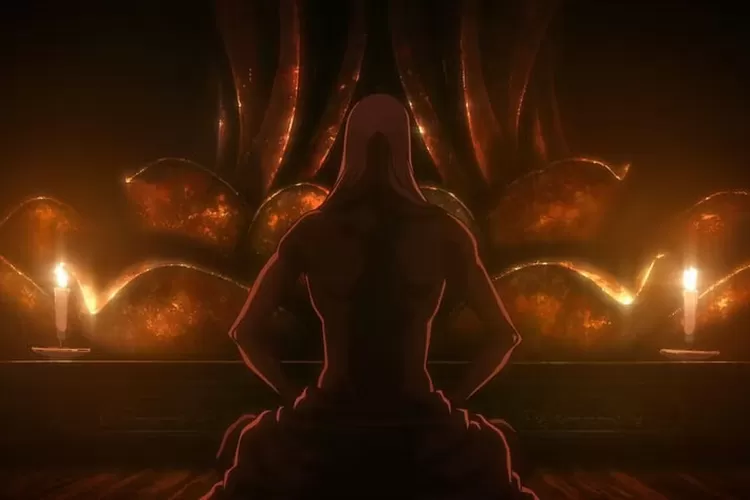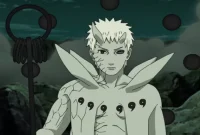In the captivating world of Bleach manga, a story unfolds, revealing the legend of Mimihagi, a local deity worshipped by many for its ability to bestow blessings upon its followers. This enigmatic figure holds a significant role in the life of Juushiro Ukitake, one of Bleach’s memorable characters.
Ukitake’s journey with Mimihagi began when he was just a young child. Plagued by a severe illness, his parents turned to the local deity for help. They fervently prayed at a shrine located in the heart of Rukongai district’s 76th district, Sakahone. Their prayers were answered, and Ukitake’s life was spared, thanks to the intervention of Mimihagi.
As the Thousand Year Blood War Arc unfolds, Ukitake finds himself stepping into a greater destiny. He activates a powerful technique known as Kamikake, preparing to become the right hand of the Soul King. Mimihagi, the deity with the power to control stagnation and prevent any changes or progress, plays a crucial role in this grand scheme.
What sets Mimihagi apart is its possession of the power of the Soul King and its ability to see the future. This mystic being can achieve its goals by establishing a symbiotic relationship with any creature it attaches itself to. Ukitake, driven by his unwavering dedication to protecting the Soul Society, makes the ultimate sacrifice. He offers part of his own body to Mimihagi, exchanging his life and becoming its vessel.
Mimihagi, revered as a deity of stillness, can grant blessings to its followers. However, there is one exception – its own eyes. These serve as a reminder of the immense power Mimihagi holds and the potential consequences that come with it. Symbolizing silence, this deity has the ability to control growth and progress, halting change and development in its tracks.
The climax of this captivating tale arrives as Mimihagi reaches the Soul King’s Palace and envelops the divided soul of the Soul King. However, this moment of triumph is met with a threat. Yhwach, a formidable opponent, attempts to attack Mimihagi, only to be met with a resilient shadow barrier.
Ukitake’s selfless sacrifice paves the way for Mimihagi to bring peace to the Soul Society. But as is often the case, such feats come with a price. Ukitake’s prolonged life, obtained through his ritual with Mimihagi, comes at the cost of his deteriorating health. The sacrifice he makes for the greater good weighs heavily on his frail body.
In conclusion, Mimihagi, the deity of stillness and control, signifies the power to govern stagnation and prevent change. Through its symbiotic bond with Ukitake, blessings are granted, and the future is foreseen. Yet, amidst this divinity lies the cost of sacrifice and the toll it takes on the vessel. The tale of Mimihagi and Ukitake serves as a poignant reminder of the complexity and consequences of power and devotion.




